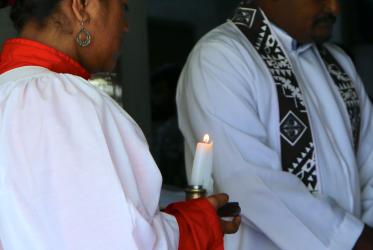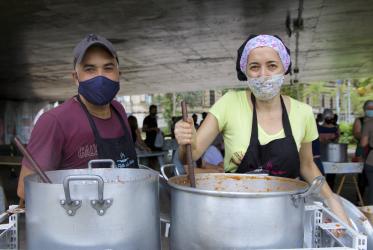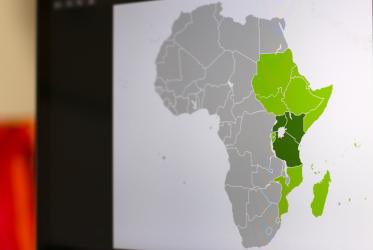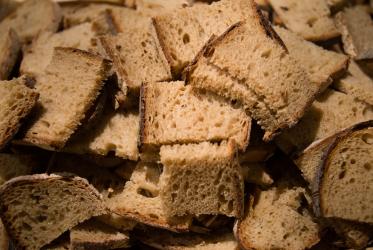Displaying 21 - 40 of 168
Webinar: “Climate Justice, Food, and Faith”
09 November 2021
Webinar remembers past massacres in the Pacific
21 October 2021
Webinar: Sustainable food systems to overcome hunger
08 October 2021
WCC Eco-School 2020 for Pacific region is further postponed
14 January 2021
WCC Eco-School 2021 for Pacific region on Water, Food and Climate Justice
22 - 28 February 2021
On World Food Day, “we pray for wisdom to care for the earth”
16 October 2020













